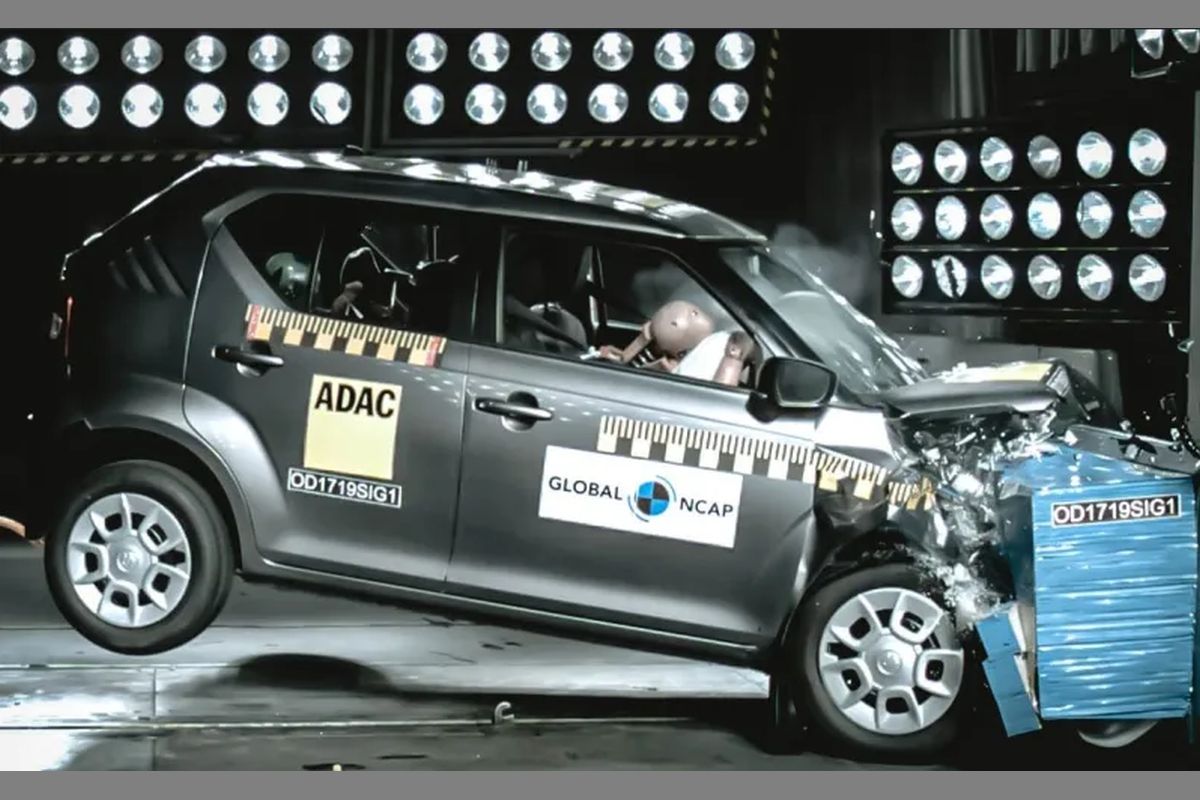Vaishnaw says first ‘Made in India’ chip to be rolled out this year
Union Minister Ashwini Vaishnaw said the first ‘Made in India’ chip will be rolled out this year.
The SA-spec Ignis that has been crash tested was equipped with dual front airbags that come standard on the India-spec Ignis.

Representation image (File Photo)
Global NCAP (New Car Assessment Programme) recently tested the India-made Ignis that is sold in South Africa. It scored a 3-star rating, which is better than the India-made Swift (third-gen) that scored two stars in the same test last year.
The Ignis that was tested by Global NCAP was equipped with dual front airbags, which are offered as standard in India. So there’s a fair chance that if the Indian Ignis was put to test by the Global NCAP, it could get a similar rating.
Advertisement
Like the Swift, the Ignis’ bodyshell integrity was rated unstable. Both the cars are based on the same Heartect platform philosophy. While the Ignis is underpinned by the Heartect A platform, the Swift is underpinned by the Heartect B version. The new-gen WagonR that was launched in India in January 2019 shares its platform with the Ignis while the Baleno and Swift are based on the Heartect B platform.
Advertisement
Speaking of other cars that were rated unstable in terms of bodyshell integrity, the list includes models like the Renault Duster, the pre-facelift Ford Aspire , Tata Zest and the Mahindra Scorpio. This proves that the bodyshell integrity of a car is not a factor of its size or weight. And if a car’s bodyshell has been rated as unstable, it is not capable of withstanding further loadings. The Global NCAP crash tests, for instance, are carried out at 64kmph.
The latest test also revealed that the Ignis offers better adult protection than the Swift. It scored 9.99 out of 17 points compared to the Swift’s 7.08. The Swift, on the other hand, scored 16.23 out of 49 points for child protection when compared to the Ignis’ 8.00.
Like the Swift, the Global NCAP has declared that the protection offered to the driver’s and front passenger’s head and neck was good in the Ignis. The protection to the driver’s chest in both the cars was rated as weak. However, Global NCAP found it to be adequate for the front passenger. Interestingly, in both the cases, Global NCAP said that while both the cars were equipped with a seatbelt reminder, it did not meet the crash test body’s minimum requirements. While the India-spec Ignis gets a seatbelt reminder for both the front passengers, the Africa-spec model gets it for the driver only.
It should be noted that the Global NCAP rates cars by crash testing them at a speed of 64kmph. While a car with a higher crash test rating is definitely safer than a car with a relatively lower rating, driving a safer car should not be taken as a licence to over-speed. Global NCAP crashes cars under controlled circumstances and no rating can guarantee the safety of occupants in a crash in any car.
(Source: www.cardekho.com)
Advertisement